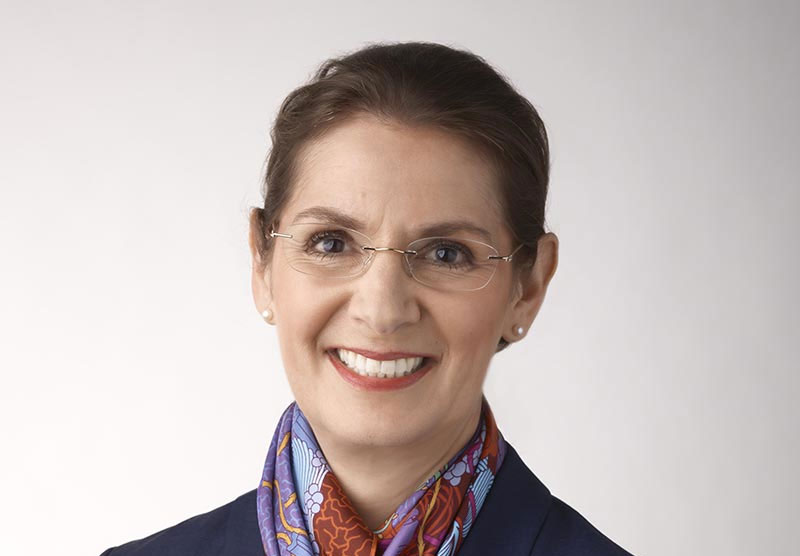Make stakeholder concerns your concerns. All of them.

“Stakeholder concerns are shareholder concerns. The increasing focus by investors, consumers and other stakeholders on sustainability is directly influencing value creation.” — Jane Diplock, chair Abu Dhabi Global Market Regulatory Committee; director, Value Reporting Foundation.
Not so long ago, boards engaged with shareholders and stakeholders on a need-to-know basis. In other words, disclosing as little as possible, usually as a precautionary or statutory measure, or when they wanted to gain support for a shiny new corporate initiative. For forward-thinking companies, those days have been consigned to the boardroom archives alongside the smoking jackets and cigar cutters.
Nowadays, a company’s stakeholders come from many walks of life, and bring with them differing opinions and influences. It’s not just the shareholders anymore; you can add customers, suppliers, employees, politicians, activists and social-media influencers to the list.
The COVID-19 pandemic has added extra urgency to the need for engagement and transparency, with companies and their leaders having to show tangibly that they care about their stakeholders. Flexible working hours, improved health-care benefits, remote work and childcare sit alongside recycling, carpooling and carbon offsets as issues being brought to the leadership table by employees, an important stakeholder group for all companies.
Companies have realized that the Great Resignation is more than a term. More than 4.4 million Americans quit their jobs in September 2021. Companies — and their supply chains — are reeling. Today’s employees want more than just a monthly paycheck from their employer. What they want is a bigger purpose than making money, that their workplace is part of the environmental and social solutions to the world’s problems; not part of the problem. What they don’t want is to leave their values and dreams of broader impact on the doorstep of their workplace, especially when that workplace is their living room or kitchen table, as it has been for many of us.
Environmental, social and governance (ESG) risks and opportunities surround companies. Climate change, supply chain disruptions, human-rights issues, corruption, executive pay, diversity, equity and inclusion, water footprint, use of AI and cybersecurity are some of the topics being brought to companies’ attention, first by young, vocal activists such as Greta Thunberg and lately by mainstream asset-managers, customers, employees/talent and other stakeholders.
Not listening to your stakeholders can spell disaster. Just look at what happened to Exxon last year. It is in fact a wasted opportunity for free advice. You should cherish the stakeholders that care so much about your company that they are willing to communicate their opinions and expectations to you. Listen carefully to their comments before the dispute/fight/discussion goes public on social media into the media.
Many boardrooms would be delighted if negative comments melted away on social media platforms. Some executives think that stakeholders simply don’t understand and it is not worth arguing. They might think that “if they don’t love us they hate us”. This is the response of the past. Instead, leaders should actively invite critics in, listen to them, be willing to learn from mistakes, and then find the best solution, as well as ensuring that stakeholder communications are continuously improved. Board members should learn to think like an activist.
This is not easy, but it is worth it and, therefore stakeholder engagement should be a key tool in management and the board’s toolbox. Boards should ask for insight from stakeholder groups that the company finds are most material to its strategic success, as well as from those that believe that the company is falling short, even if senior management doesn’t see the groups as material. To do that successfully, boards must be lock-step with management on every stakeholder group and every topic so that all questions about short- and long-term impact are addressed.
Stakeholders and their concerns can come from anywhere. Last year, a Netherlands court ruled that oil behemoth Shell must reduce its emissions by 45% based on 2019 levels by 2030. This landmark case came about after pressure brought by Friends of the Earth, six other bodies and thousands of Dutch citizens. This was the first time a company had been legally obliged to make its policies align with the 2016 Paris Agreement. Rest assured, this is the first domino of many.
Today, companies have access to sophisticated listening and monitoring tools to listen to stakeholders on many different platforms. Using AI to make sense of that big data, they can gauge their concerns, appreciate their plaudits and understand the direction their company should take next.
Political stakeholders have forced themselves to the forefront for many companies. Social and racial justice issues, such as the Black Lives Matter movement, are hot buttons for the younger generation outside the boardroom. Many of the members of Congress who voted to overturn the results of the 2020 US presidential election now find themselves shunned by many businesses, who are in turn under pressure to do so from their stakeholders. The list goes on.
Your investors are watching, too. In January, Aviva Investors joined a stellar cast list of firms led by BlackRock and State Street Global Advisors that warned companies will suffer consequences (including getting directors kicked out) if they fail to make good on their sustainability pledges.
Companies cannot afford to fall into the same trap on sustainability as Kodak did with innovation. That once-market-leading company stopped listening, and soon we all stopped paying attention to them.
To paraphrase (if I may) former US President John F. Kennedy: “Ask not what your stakeholders can do for you – ask what you can do for your stakeholders.”
Written by Helle Bank Jorgensen.
Have you read?
# Best CEOs In the World Of 2022.
# TOP Citizenship by Investment Programs, 2022.
# Top Residence by Investment Programs, 2022.
# Global Passport Ranking, 2022.
# The World’s Richest People (Top 100 Billionaires, 2022).
Bring the best of the CEOWORLD magazine's global journalism to audiences in the United States and around the world. - Add CEOWORLD magazine to your Google News feed.
Follow CEOWORLD magazine headlines on: Google News, LinkedIn, Twitter, and Facebook.
Copyright 2025 The CEOWORLD magazine. All rights reserved. This material (and any extract from it) must not be copied, redistributed or placed on any website, without CEOWORLD magazine' prior written consent. For media queries, please contact: info@ceoworld.biz








